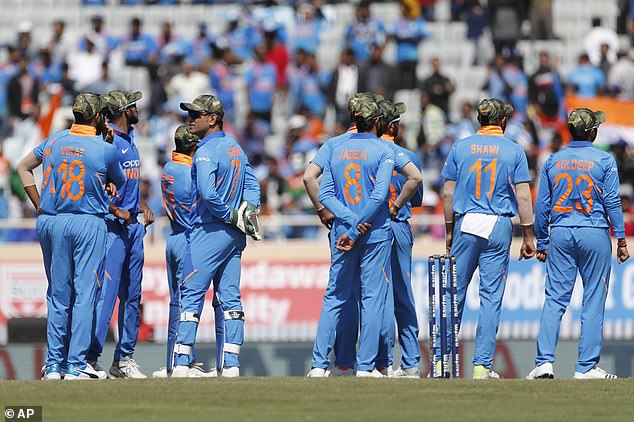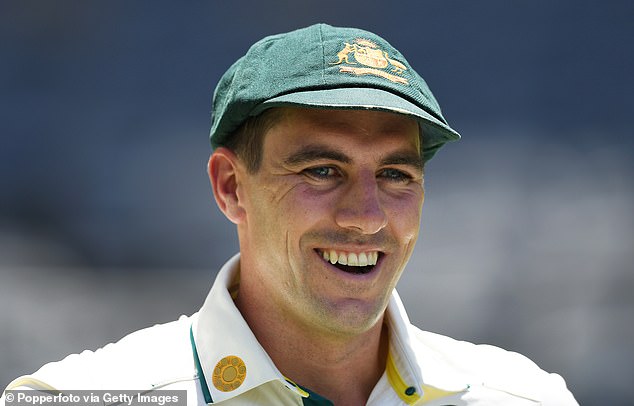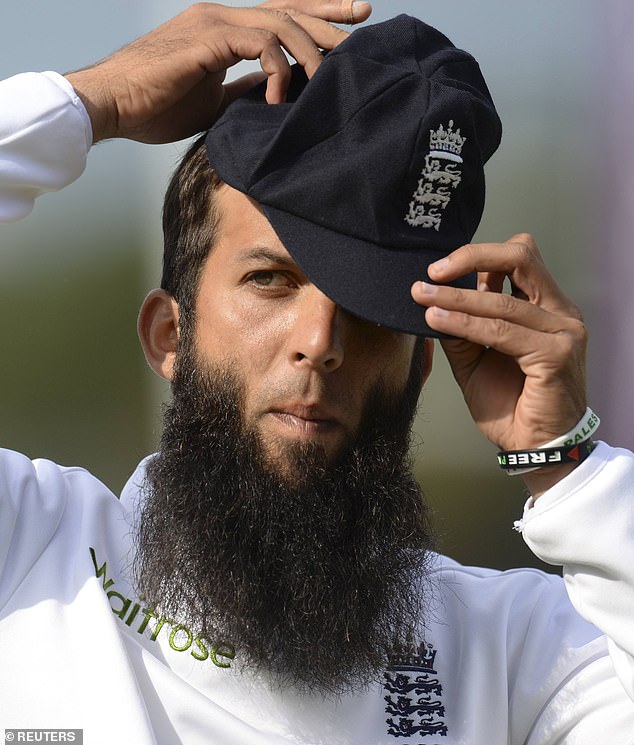Revealed: The cricket political statements that got the green light – after Usman Khawaja was banned from wearing his pro-Palestine shoes
- The Australian side took the knee in 2022
- India wore camouflage caps in 2019
- Australians to boycott Afghanistan in 2023
Usman Khawaja has been banned by Cricket Australia from sharing what he calls a 'humanitarian message' of peace during the Gaza war – but political statements in cricket are not a new phenomenon.
Khawaja, a proud Muslim, unveiled plans to wear shoes with the slogans 'freedom is a human right' and 'all lives matter' during Australia's test match against Pakistan in Perth on Thursday.
However, cricket's governing body has directed Khawaja to 'enforce' the rules banning the display of personal messages.
The sport has had a complicated and often uncomfortable relationship with political protests, although players continue to take positions on various issues.
In 1971, South African players walked off the field after just one ball was bowled to protest the apartheid regime during a high-profile first-class match in Cape Town.
Aussie player David Warner takes a knee ahead of the first ball of the Test at Optus Stadium in Perth against West Indies

India wore army camouflage-style caps in solidarity with Indian paramilitary police killed in a militant attack by a Pakistan-based group
It was a defining moment in both South African history and the sport.
In 2022, the Australian Test team took the knee before the first ball in the series opener against the West Indies in Perth.
The gesture was popularized by the Black Lives Matter movement in the US and Australia, with Captain Pat Cummins saying the decision to take part was made 'in support of equality'.
At the time, fans flooded Cricket Australia's post about the opening match of the Test summer at Optus Stadium with comments about wanting the national team to focus on cricket, not politics.
In 2019, the Indian cricket team wore army camouflage-style caps during the third ODI against Australia, in tribute to the Indian paramilitary police who were killed in a militant attack by a Pakistan-based group.
The idea to wear the caps came from former Indian cricket captain Mahendra Singh Dhoni, one of cricket's biggest stars and an honorary lieutenant colonel in the Indian Army.
The team, led by Virat Kohli, also donated their earnings from that match to the families of the defense personnel who died in the line of duty.
However, later that year, Dhoni was asked to remove the Indian Army insignia from his gloves. The ICC said the dress and equipment rules only allow manufacturers' logos on clothing, and that Dhoni or the Indian team had not sought permission to wear the badge.
In January 2023, Australia canceled their one-day series with Afghanistan following concerns about 'further restrictions' on women's rights in the Taliban-ruled country.

Australia refused to play Test cricket against Afghanistan after the Taliban banned women from playing

The ICC ruled that England's Moeen Ali cannot wear 'Free Palestine' and 'Save Gaza' bands as a form of protest
Australian Sports Minister Anika Wells praised the party for the boycott in response to the Taliban's “unacceptable” treatment of women and girls.
In 2014, England cricketer Moeen Ali was banned by the International Cricket Council from wearing his 'Save Gaza' and 'Free Palestine' wristbands while playing for England.
The match referee David Boon banned the batsman from wearing the wristband and an ICC statement said: 'The ICC Equipment and Dress Code does not permit the display of messages relating to political, religious or racial activities or causes during an international competition.
During the 2003 World Cup, club Henry Olonga and Andy Flower made a 'human rights' stand against the Mugabe regime by wearing black armbands during Zimbabwe's opening match against Namibia.
They played with the black armbands to “mourn the death of democracy in our beloved Zimbabwe,” as they put it in a statement afterwards.
The pair were condemned by Zimbabwean political figures but praised by international media.
The ICC decided that Flower and Olonga had taken political action, but declined to charge them with a crime.
